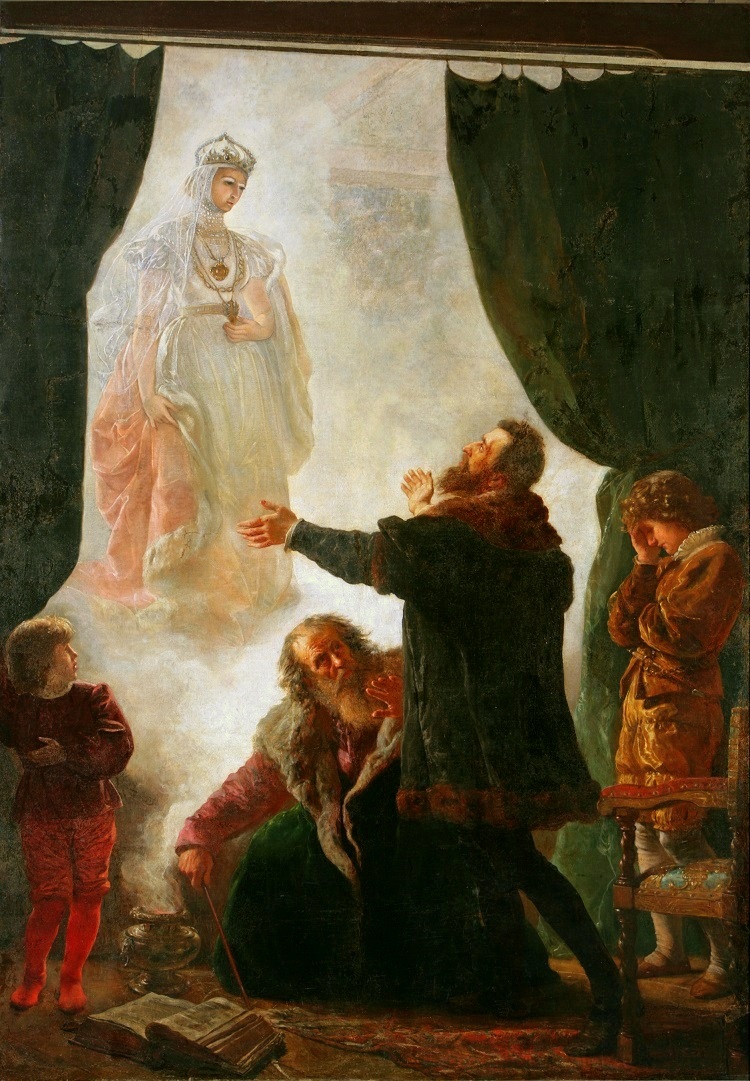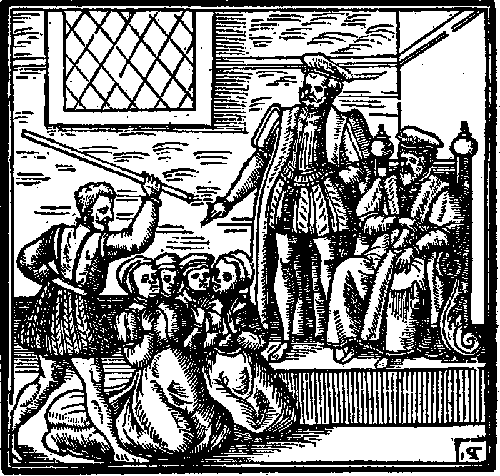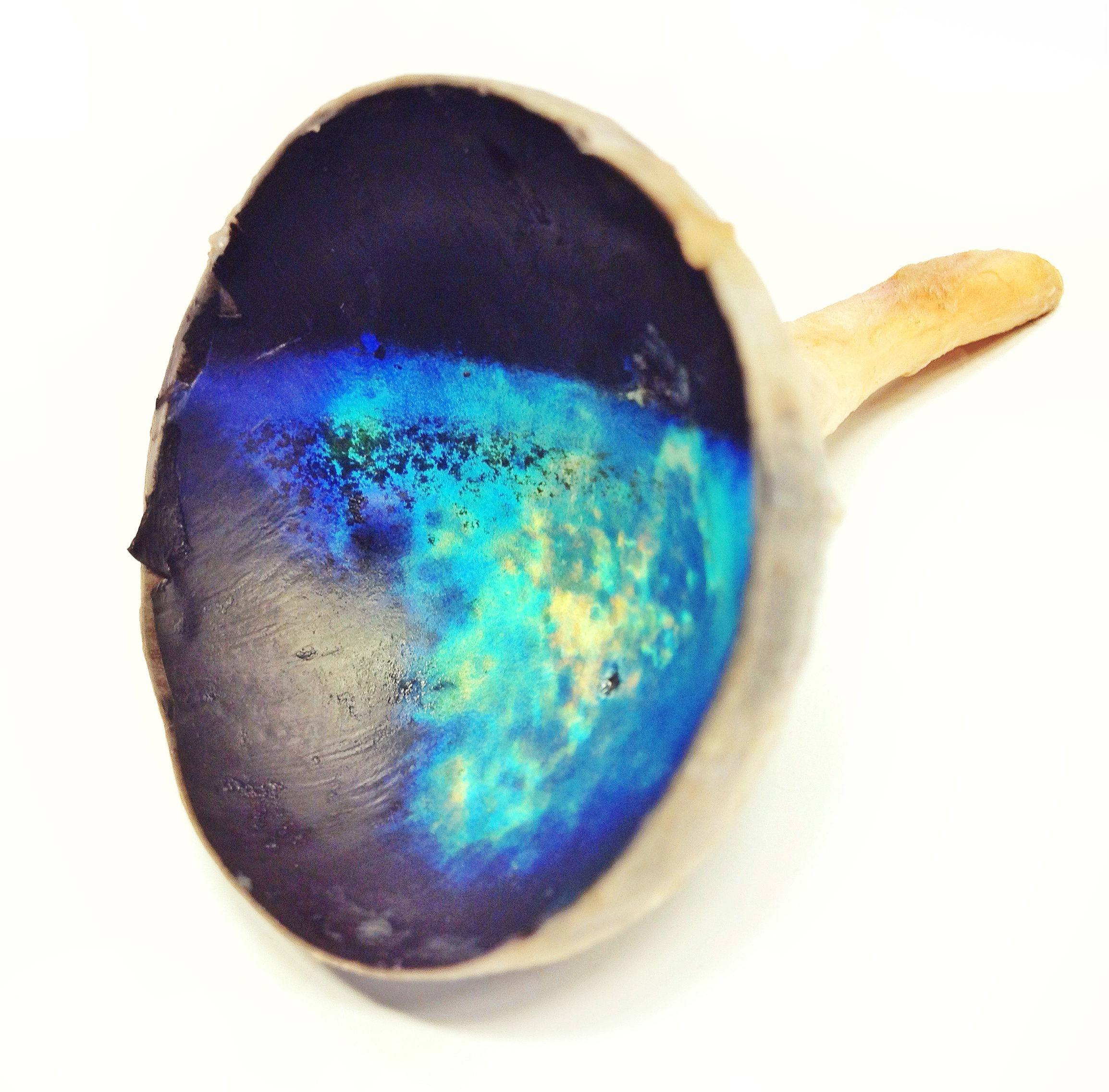|
Lemures
The lemures were shades or spirits of the restless or malignant dead in Roman religion, and are probably cognate with an extended sense of larvae (from Latin ''larva'', "mask") as disturbing or frightening. ''Lemures'' is the more common literary term but even this is rare: it is used by the Augustan poets Horace and Ovid, the latter in his ''Fasti'', the six-book calendar poem on Roman holidays and religious customs. The word ''lemures'' can be traced to the PIE stem *', which also appears in the name of the Greek monster Lamia. Description ''Lemures'' may represent the wandering and vengeful spirits of those not afforded proper burial, funeral rites or affectionate cult by the living: they are thus not attested by tomb or votive inscriptions. Ovid interprets them as vagrant, unsatiated and potentially vengeful ''di manes'' or '' di parentes'', ancestral gods or spirits of the underworld. To him, the rites of their cult suggest an incomprehensibly archaic, quasi-magical and ... [...More Info...] [...Related Items...] OR: [Wikipedia] [Google] [Baidu] |
Lemuria (festival)
The Lemuralia or Lemuria was an annual event in the religion of ancient Rome, during which the Romans performed rites to exorcise any malevolent and fearful ghosts of the restless dead from their homes. These unwholesome spectres, the ''lemures'' or ''larvae'' were propitiated with chants and offerings of black beans. Observance In the Julian calendar the three days of the festival were 9, 11, and 13 May. Lemuria's name and origin myth, according to Ovid, derives from a supposed ''Remuria'' instituted by Romulus to appease the angry spirit of his murdered twin, Remus. The philosopher Porphyry points out that Remus' death was violent, premature, and a matter of regret for Romulus. Toynbee defines ''lemures'' as ordinary ''di Manes'', made harmful and spiteful to the living because "kinless and neglected" in death and after it, having no rites or memorial, free to leave their dead body but unable to enter the underworld or afterlife. A less common but more "mischievous and ... [...More Info...] [...Related Items...] OR: [Wikipedia] [Google] [Baidu] |
Lemur
Lemurs ( ) (from Latin ''lemures'' – ghosts or spirits) are Strepsirrhini, wet-nosed primates of the Superfamily (biology), superfamily Lemuroidea (), divided into 8 Family (biology), families and consisting of 15 genera and around 100 existing species. They are endemic to the island of Madagascar. Most existing lemurs are small, have a pointed snout, large eyes, and a long tail. They arboreal, chiefly live in trees and nocturnal, are active at night. Lemurs share resemblance with other primates, but evolved independently from monkeys and apes. Due to Madagascar's highly seasonal climate, Evolution of lemurs, lemur evolution has produced a level of species diversity rivaling that of any other primate group. Until shortly after humans arrived on the island around 2,000 years ago, there were lemurs as large as a male gorilla. Most species have been discovered or promoted to full species status since the 1990s; however, lemur Taxonomy (biology), taxonomic classification is ... [...More Info...] [...Related Items...] OR: [Wikipedia] [Google] [Baidu] |
Religion In Ancient Rome
Religion in ancient Rome consisted of varying imperial and provincial religious practices, which were followed both by the people of Rome as well as those who were brought under its rule. The Romans thought of themselves as highly religious, and attributed their success as a world power to their collective piety ''(pietas)'' in maintaining Pax deorum, good relations with the gods. Their Polytheism, polytheistic religion is known for having honored List of Roman deities, many deities. The presence of Magna Graecia, Greeks on the Italian peninsula from the beginning of the historical period influenced Culture of ancient Rome, Roman culture, introducing some religious practices that became fundamental, such as the ''Cult (religious practice), cultus'' of Apollo. The Romans looked for common ground between their major gods and those of the Greeks (''interpretatio graeca''), adapting Greek mythology, Greek myths and iconography for Latin literature and Roman art, as the Etruscans h ... [...More Info...] [...Related Items...] OR: [Wikipedia] [Google] [Baidu] |
Chthonic
The word chthonic (), or chthonian, is derived from the Ancient Greek word ''χθών, "khthon"'', meaning earth or soil. It translates more directly from χθόνιος or "in, under, or beneath the earth" which can be differentiated from Γῆ, or "ge", which speaks to the living surface of land on the earth. In Greek, chthonic is a descriptive word for things relating to the underworld and can be used in the context of chthonic gods, chthonic rituals, chthonic cults, and more. This is as compared to the more commonly referenced Olympic gods and their associated rites and cults. Olympic gods are understood to reference that which exists above the earth, particularly in the sky. Gods that are related to agriculture are also considered to have chthonic associations as planting and growing takes place in part under the earth. Chthonic deities Chthonic and ouranic, or olympic, are not completely opposite descriptors. They do not cleanly differentiate types of gods and worship int ... [...More Info...] [...Related Items...] OR: [Wikipedia] [Google] [Baidu] |
Roman Underworld
Roman or Romans most often refers to: *Rome, the capital city of Italy *Ancient Rome, Roman civilization from 8th century BC to 5th century AD *Roman people, the people of ancient Rome *''Epistle to the Romans'', shortened to ''Romans'', a letter in the New Testament of the Christian Bible Roman or Romans may also refer to: Arts and entertainment Music * Romans (band), a Japanese pop group * ''Roman'' (album), by Sound Horizon, 2006 * ''Roman'' (EP), by Teen Top, 2011 *" Roman (My Dear Boy)", a 2004 single by Morning Musume Film and television *Film Roman, an American animation studio * ''Roman'' (film), a 2006 American suspense-horror film * ''Romans'' (2013 film), an Indian Malayalam comedy film * ''Romans'' (2017 film), a British drama film * ''The Romans'' (''Doctor Who''), a serial in British TV series People *Roman (given name), a given name, including a list of people and fictional characters *Roman (surname), including a list of people named Roman or Romans *Ῥωμα� ... [...More Info...] [...Related Items...] OR: [Wikipedia] [Google] [Baidu] |
Undead
The undead are beings in mythology, legend, or fiction that are deceased but behave as if alive. Most commonly the term refers to corporeal forms of formerly-alive humans, such as mummies, vampires, and zombies, who have been reanimated by supernatural means, technology, or disease. In some cases (for example in Dungeons & Dragons) the term also includes incorporeal forms of the dead, such as ghosts. The undead are featured in the belief systems of most cultures, and appear in many works of fantasy and horror fiction. The term is also occasionally used for real-life attempts to resurrect the dead with science and technology, from early experiments like Robert E. Cornish's to future sciences such as "chemical brain preservation" and "cryonics." History Bram Stoker considered using the title, ''The Un-Dead'', for his novel '' Dracula'' (1897), and use of the term in the novel is mostly responsible for the modern sense of the word. The word does appear in English before Stoker ... [...More Info...] [...Related Items...] OR: [Wikipedia] [Google] [Baidu] |
Daemonologie
''Daemonologie''—in full ''Daemonologie, In Forme of a Dialogue, Divided into three Books: By the High and Mighty Prince, James &c.''—was first published in 1597 by King James VI of Scotland (later also James I of England) as a philosophical dissertation on contemporary necromancy and the historical relationships between the various methods of divination used from ancient black magic. It was reprinted again in 1603 when James took the throne of England. The widespread consensus is that King James wrote ''Daemonologie'' in response to sceptical publications such as Reginald Scot's '' The Discoverie of Witchcraft.'' This included a study on demonology and the methods demons used to bother troubled men. It also touches on topics such as werewolves and vampires. The book endorses the practice of witch hunting. This book is believed to be one of the main sources used by William Shakespeare in the production of ''Macbeth''. Shakespeare attributed many quotes and rituals found ... [...More Info...] [...Related Items...] OR: [Wikipedia] [Google] [Baidu] |
James I Of England
James VI and I (James Charles Stuart; 19 June 1566 – 27 March 1625) was King of Scotland as James VI from 24 July 1567 and King of England and King of Ireland, Ireland as James I from the Union of the Crowns, union of the Scottish and English crowns on 24 March 1603 until his death in 1625. The kingdoms of Kingdom of Scotland, Scotland and Kingdom of England, England were individual sovereign states, with their own parliaments, judiciaries, and laws, though both were ruled by James in personal union. James was the son of Mary, Queen of Scots, and a great-great-grandson of Henry VII of England, Henry VII, King of England and Lord of Ireland, and thus a potential successor to all three thrones. He succeeded to the Scottish throne at the age of thirteen months, after his mother was compelled to abdicate in his favour. Four different regents governed during his minority, which ended officially in 1578, though he did not gain full control of his government until 1583. In 1603, ... [...More Info...] [...Related Items...] OR: [Wikipedia] [Google] [Baidu] |
Mephistopheles
Mephistopheles (, ), also known as Mephisto, is a demon featured in German folklore. He originally appeared in literature as the demon in the Faust legend, and he has since appeared in other works as a stock character (see: Mephistopheles in the arts and popular culture). Etymology and name meaning The name ''Mephistopheles'' is a corrupted Greek compound. The Greek particle of negation (μη, ''mē'') and the Greek word for love or loving (φίλος, ''philos'') are the first and last terms of the compound but the middle term is more doubtful. For the middle term, three meanings have been noticed and three different complete etymologies have been established: *not loving light (φως το, ''phōs to''; the old form of the word being ''Mephostopheles'') *not loving Faust *allied to '' mephitic,'' a term which designates the poisonous vapors arising from the earth in certain places—pools, caverns, springs—destructive of human life. It is likely that the name was invent ... [...More Info...] [...Related Items...] OR: [Wikipedia] [Google] [Baidu] |
Goethe's Faust
''Faust'' is a tragic play in two parts by Johann Wolfgang von Goethe, usually known in English as '' Faust, Part One'' and ''Faust, Part Two''. Nearly all of Part One and the majority of Part Two are written in rhymed verse. Although rarely staged in its entirety, it is the play with the largest audience numbers on German-language stages. ''Faust'' is considered by many to be Goethe's ''magnum opus'' and the greatest work of German literature. The earliest forms of the work, known as the ''Urfaust'', were developed between 1772 and 1775; however, the details of that development are not entirely clear. ''Urfaust'' has twenty-two scenes, one in prose, two largely prose and the remaining 1,441 lines in rhymed verse. The manuscript is lost, but a copy was discovered in 1886. The first appearance of the work in print was ''Faust, a Fragment'', published in 1790. Goethe completed a preliminary version of what is now known as ''Part One'' in 1806. Its publication in 1808 was follow ... [...More Info...] [...Related Items...] OR: [Wikipedia] [Google] [Baidu] |
Goethe
Johann Wolfgang von Goethe (28 August 1749 – 22 March 1832) was a German poet, playwright, novelist, scientist, statesman, theatre director, and critic. His works include plays, poetry, literature, and aesthetic criticism, as well as treatises on botany, anatomy, and colour. He is widely regarded as the greatest and most influential writer in the German language, his work having a profound and wide-ranging influence on Western literary, political, and philosophical thought from the late 18th century to the present day.. Goethe took up residence in Weimar in November 1775 following the success of his first novel, ''The Sorrows of Young Werther'' (1774). He was ennobled by the Duke of Saxe-Weimar, Karl August, in 1782. Goethe was an early participant in the ''Sturm und Drang'' literary movement. During his first ten years in Weimar, Goethe became a member of the Duke's privy council (1776–1785), sat on the war and highway commissions, oversaw the reopening of silver mines ... [...More Info...] [...Related Items...] OR: [Wikipedia] [Google] [Baidu] |
Tapetum Lucidum
The ''tapetum lucidum'' ( ; ; ) is a layer of tissue in the eye of many vertebrates and some other animals. Lying immediately behind the retina, it is a retroreflector. It reflects visible light back through the retina, increasing the light available to the photoreceptors (although slightly blurring the image). The tapetum lucidum contributes to the superior night vision of some animals. Many of these animals are nocturnal, especially carnivores, while others are deep sea animals. Similar adaptations occur in some species of spiders. Haplorhine primates, including humans, are diurnal and lack a ''tapetum lucidum''. Function and mechanism Presence of a ''tapetum lucidum'' enables animals to see in dimmer light than would otherwise be possible. The ''tapetum lucidum'', which is iridescent, reflects light roughly on the interference principles of thin-film optics, as seen in other iridescent tissues. However, the ''tapetum lucidum'' cells are leucophores, not iridophores. ... [...More Info...] [...Related Items...] OR: [Wikipedia] [Google] [Baidu] |







